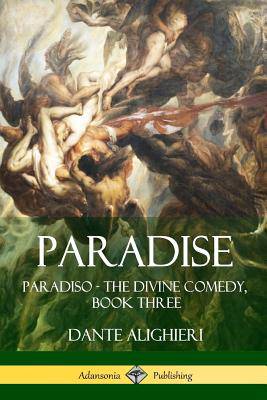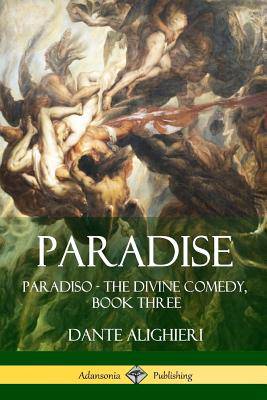
- Afhalen na 1 uur in een winkel met voorraad
- Gratis thuislevering in België vanaf € 30
- Ruim aanbod met 7 miljoen producten
- Afhalen na 1 uur in een winkel met voorraad
- Gratis thuislevering in België vanaf € 30
- Ruim aanbod met 7 miljoen producten
Zoeken
€ 16,45
+ 32 punten
Uitvoering
Omschrijving
Paradise, the third and final part of The Divine Comedy, tells the story of Dante's journey through the heavenly realms. Representative of the divine soul's ascent to the Lord, this timeless epic portrays haven as a series of intricate spheres which surround the Earth. Each of these represents an astronomical body, such as the Moon, Mercury, Venus and even the distant stars. Dante's deceased love interest, Beatrice Portinari, is his guide through the journey to the paradise of heaven. Just as Dante depicted Hell as having nine circles, Heaven is depicted as consisting of nine celestial spheres. Gradually the pair ascend through each of these, observing their appearance and meeting with various inhabitants along the way. The poem's grand finale sees Dante and Beatrice enter the Empyrean - the very home of God himself. Beatrice's beauty becomes more marked, while Dante himself is bathed in an intense light, so that he may be fit to behold the divine.
Specificaties
Betrokkenen
- Auteur(s):
- Uitgeverij:
Inhoud
- Aantal bladzijden:
- 94
- Taal:
- Engels
Eigenschappen
- Productcode (EAN):
- 9781387789986
- Verschijningsdatum:
- 4/05/2018
- Uitvoering:
- Paperback
- Formaat:
- Trade paperback (VS)
- Afmetingen:
- 152 mm x 229 mm
- Gewicht:
- 149 g

Alleen bij Standaard Boekhandel
+ 32 punten op je klantenkaart van Standaard Boekhandel
Beoordelingen
We publiceren alleen reviews die voldoen aan de voorwaarden voor reviews. Bekijk onze voorwaarden voor reviews.











